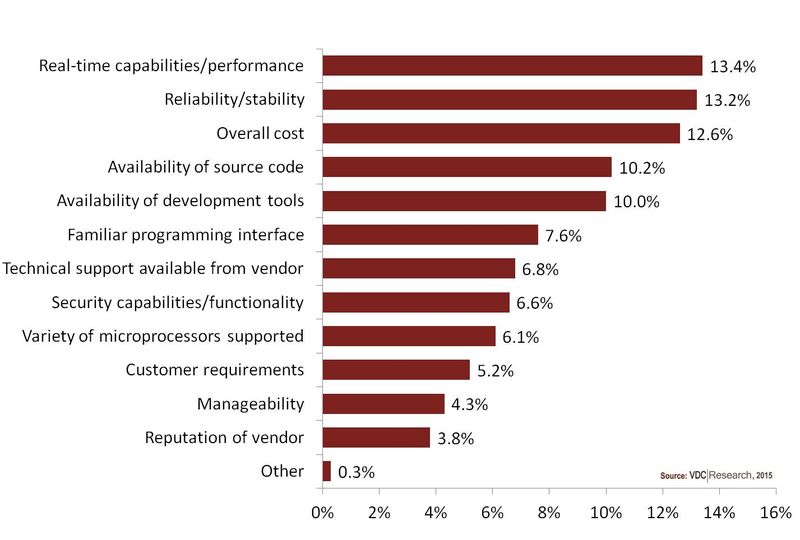IoT & Embedded Technology Blog
The Battle for the IoT is Being Fought in the MCU Software Ecosystem
System resource restrictions around memory and processing power were one of the fundamental issues that first fueled the development of the embedded operating system ecosystem. Overtime, however, the relative importance of these issues diminished in favor of more robust offerings capable of enabling sophisticated user interfaces and more advanced device connectivity. Now, however, the IoT has catalyzed a new level of market demand for OSs that can operate on MCU-class devices.
Most Important Characteristics When Selecting Primary Operating System
(Percent of Respondents Indicating MCU Used on Current Project)

The sheer volume of small-footprint devices is enticing to silicon and software vendors alike, even if they are also accompanied by lower ASPs. The potential for this ecosystem extends far beyond traditional attached hardware and software stack components, and market leaders are responding in kind with extensions to their portfolios.
This week, Wind River (Intel) announced two new operating systems:
- Rocket - a small-footprint RTOS capable of being deployed on systems with as little as 4kb of memory.
- Pulsar - A small-footprint Linux OS. Less than 1/3 the size of WR's traditional Linux offering.
And both commercial-grade OSs are free. (Wind River will sell support and maintenance, etc.)
------
To continue reading VDC's analysis on this industry announcement please log-in to your VDCConnect account.
View the 2017 IoT & Embedded Technology Research Outline to learn more.